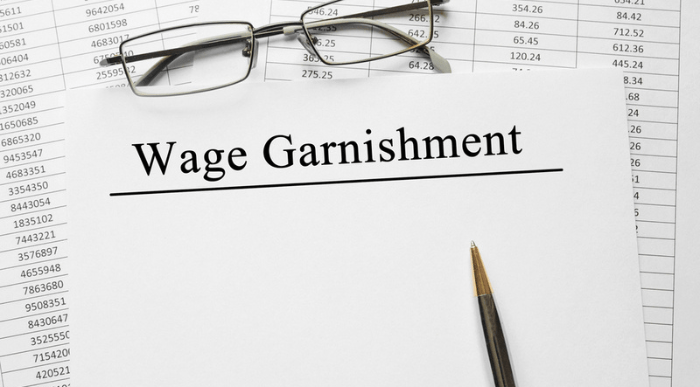
The Wage Garnishment Process: How It Works
Being indebted to the IRS can incur a slew of consequences, one of which is called wage garnishment. The term alone is enough to elicit fear in any of us, but we’re here to tell you that there’s nothing to be afraid of.
By understanding what wage garnishment is, why it happens, how it works, and what actions you can take, you can navigate this financial challenge with confidence. So, let’s delve into the world of wage garnishment and equip you with the tools to protect your income.
Defining Wage Garnishment: The Basics
Wage garnishment refers to a legal process where a portion of your earnings is withheld by an employer and sent directly to a creditor to satisfy a debt. It’s like an involuntary paycheck deduction, initiated by a court order or government agency.
The Reasons behind Wage Garnishment: Why It Happens
Wage garnishment typically occurs due to:
- Unpaid Debts: If you owe money to creditors and fail to make payments as agreed, they can seek legal action to garnish your wages.
- Child Support or Alimony Obligations: When individuals fall behind on their child support or alimony payments, the court can order wage garnishment to ensure the support is provided.
- Unpaid Taxes: If you have outstanding tax debts, the Internal Revenue Service (IRS) can initiate wage garnishment to collect what you owe.
The Wage Garnishment Process: How It Works
Understanding the wage garnishment process is crucial to protect your income. Here’s an overview of how it typically unfolds:
- Creditor or Agency Action: The creditor or government agency initiates legal action to obtain a court order for wage garnishment.
- Court Order Issuance: Once the court determines that wage garnishment is warranted, they issue a court order specifying the amount to be withheld from your wages.
- Employer Notification: Your employer receives the court order and is legally obligated to comply with it. They will notify you of the impending wage garnishment.
- Wage Withholding: Your employer will deduct the specified amount from your paycheck and send it directly to the creditor or agency.
- Ongoing Garnishment: Wage garnishment continues until the debt is satisfied or until the court or agency determines otherwise.
Addressing Wage Garnishment: Taking Action
If you find yourself facing wage garnishment, then your first course of action should be to hire your local tax attorney. When it comes to addressing an order levied by the IRS, no one will be more effective than a qualified lawyer who specializes in the world of tax law.
For a free consultation with a tax attorney, click here or call (833) 391-1038.
Free Tax Case Review
If you are struggling with tax debt or have received a letter from the IRS complete the form below.IRS Audit
You received an audit notice from the IRS
Tax Debt Relief
You owe the IRS money and are looking for relief options
Wage Garnishment
The IRS is taking part of your wages to pay off your debt
Tax Lien
The IRS put a legal claim on your property
IRS Property Seizure
The IRS is going to take your property to pay down or pay off your tax debt
Penalty Abatement
You want to request to remove or reduce penalties assessed by IRS
Innocent Spouse Relief
Relief from joint tax debt caused by your spouse or former spouse
Tax Debt FAQ
Common facts, questions and answers about tax debt and tax debt reilef
Tax Debt Lawyer
A tax debt lawyer can help you with your tax debt problems





